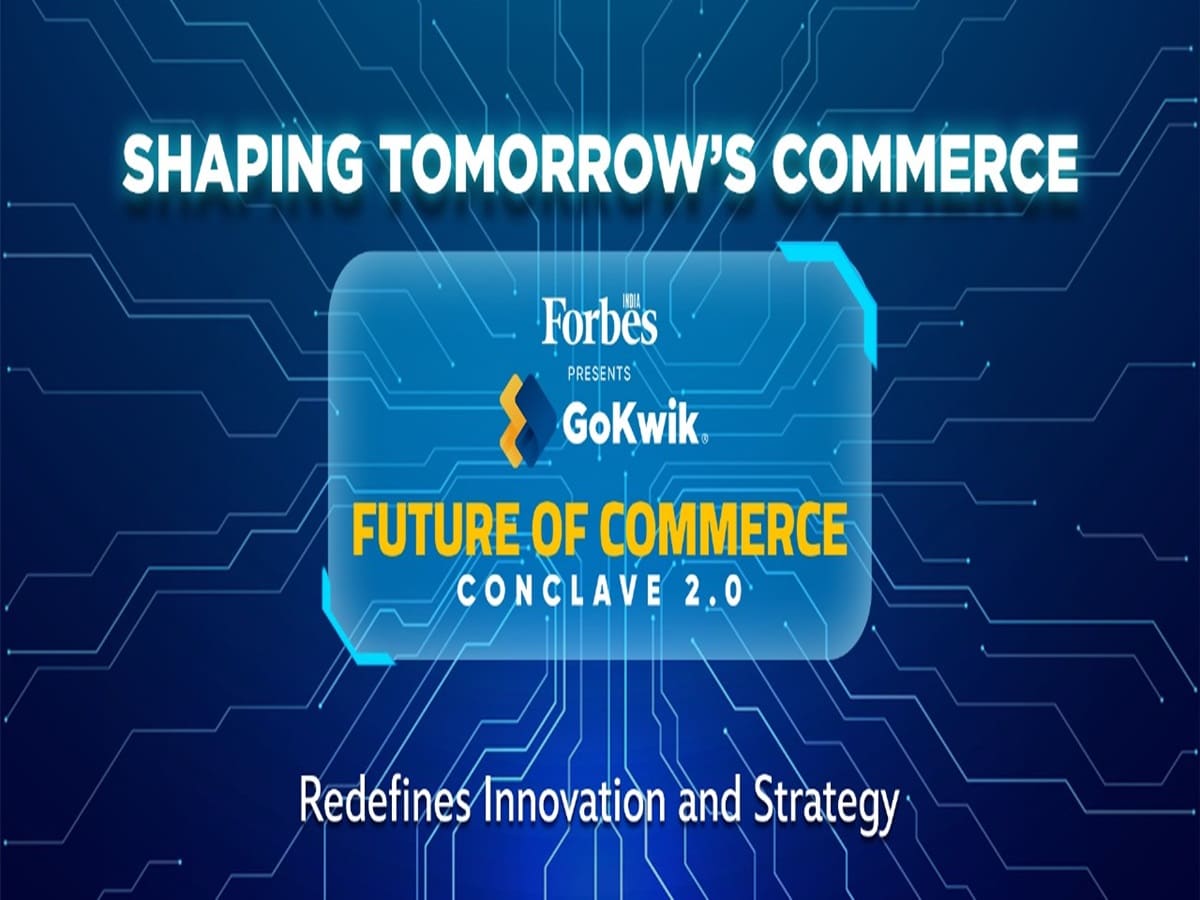What sets the GoKwik Future of Commerce Conclave 2.0 apart is its unique ability to convene industry leaders while fostering groundbreaking ideas and actionable strategies. Amidst the shifts in commerce driven by technology and changing consumer expectations, the conclave distinguished itself as a hub for transformative thinking. By delving into the interplay between AI, omnichannel approaches, fintech innovations, and the art of storytelling, it offered a comprehensive roadmap for businesses navigating this evolving landscape. This seamless blend of technological advancements, creative foresight, and human-centered design underscored the event’s pivotal role in shaping the future of commerce.
Held in Bengaluru in January 2025, the conclave served as a crucible for innovation, bringing together trailblazers from diverse sectors. Discussions on AI-driven strategies and omnichannel innovations revealed a collective aspiration: to craft a future where cutting-edge technology and customer-centricity coalesce into unparalleled experiences, reflecting the dynamic evolution of the digital-first commerce ecosystem.
The transformation of commerce today rests on three key pillars: limitless discovery, invisible checkout, and Kwik delivery, as highlighted by Chirag Taneja, Co-Founder and CEO of GoKwik. “Technology is reshaping the way we shop, and the future belongs to businesses that can leverage AI to create frictionless, intuitive experiences,” he noted. This vision was reinforced by Naveen Tewari, Founder and CEO of InMobi Group, who delved into the transformative role of generative AI in crafting hyper-personalized user journeys.
“Generative AI is the next frontier of the internet, offering businesses tools to predict needs, automate content, and redefine engagement at scale,” he explained. By merging creativity and precision through mobile-first innovations, companies can stay ahead in an evolving ecosystem. Tewari’s insights emphasized the urgency for businesses to anticipate customer needs and embrace AI-driven strategies to remain relevant in the ever-changing landscape of commerce.
Rethinking Commerce Through AI
The panel on AI’s role in commerce, featuring leaders like Raghu Krishnananda (Myntra), Suman Guha (Tata Cliq), Nikhil Bhushan (Starbucks), Kishore Thota (Amazon), and Goda Ramkumar (Swiggy), explored how AI is revolutionizing customer experiences. From identifying behavioral patterns to delivering hyper-personalized solutions, the discussion showcased AI’s potential to redefine commerce at scale.
“Understanding behavioral patterns is key,” said Suman Guha. “AI empowers us to not just react to customer needs but to anticipate them, creating experiences that are truly personalized.” The insights shared underscored how AI drives operational efficiency while fostering innovation.
Bridging Online and Offline: The Omnichannel Approach
In an increasingly digital world, the importance of physical touchpoints remains undeniable. Panelists Chaitanya Ramalingegowda (Wakefit), Kaushik Mukherjee (SUGAR Cosmetics), and Siddharth Dungarwal (Snitch) emphasized the enduring value of combining online and offline strategies.
“While digital is growing exponentially, physical stores remain vital touchpoints for building trust and brand loyalty,” noted Mukherjee. Their discussion highlighted how businesses can create seamless, customer-centric journeys by integrating digital convenience with in-person experiences.
Fintech Innovations: Shaping Seamless Transactions
The fintech panel, featuring Amit Koshal (TWID) and Vibhav Hathi (OneCard), delved into how financial technology is enabling secure, scalable, and customer-friendly solutions. “Payments are no longer just transactions; they are experiences,” Koshal explained, emphasizing the role of innovation in reshaping how customers interact with businesses. From frictionless payments to scalable solutions, fintech remains a cornerstone of modern commerce.
Content Meets Commerce: Storytelling That Drives Loyalty
Ronak Shah (Obvi), Amar Nagaram (VIRGIO), Parul Gulati (Nish Hair), and Varun Gupta (Boult) shared compelling insights into how storytelling shapes purchasing decisions. “Great content creates emotional connections that transcend products,” said Shah. The session emphasized how brands can leverage authentic narratives to foster loyalty and engagement, proving that content is not just an addition but a driver of commerce.
The Rise of Q-Commerce
Kaivalya Vohra (Zepto) and Anand Daniel (Accel) tackled the rapid evolution of quick commerce. Reflecting on the sector’s unique challenges, such as scalability and profitability, Vohra highlighted how Q-commerce businesses are navigating logistical complexities with innovations in hyperlocal supply chains and inventory management. Daniel added that leveraging data-driven insights and strategic partnerships could unlock new avenues for growth. “While challenges persist, the opportunities are immense,” noted Vohra, emphasizing the potential of quick commerce to redefine convenience.
The conversation also delved into future strategies, including automation and community-centric delivery models, that could position Q-commerce as a sustainable and integral part of the commerce ecosystem. Reflecting on challenges like scalability and profitability, Vohra highlighted the immense potential of Q-commerce in addressing consumer demands for speed and convenience. “Scalability and profitability remain challenges, but the opportunities are vast,” he noted, signaling an exciting future for this fast-growing sector.
Looking Ahead
The conclave concluded on a high note, leaving attendees with actionable insights and a renewed sense of purpose. More than a gathering, GoKwik Future of Commerce Conclave 2.0 served as a springboard for transformative ideas and collaborations. It was a vivid reminder that the future of commerce lies in innovation, adaptability, and a relentless focus on the customer.
The pages slugged ‘Brand Connect’ are equivalent to advertisements and are not written and produced by Forbes India journalists.

